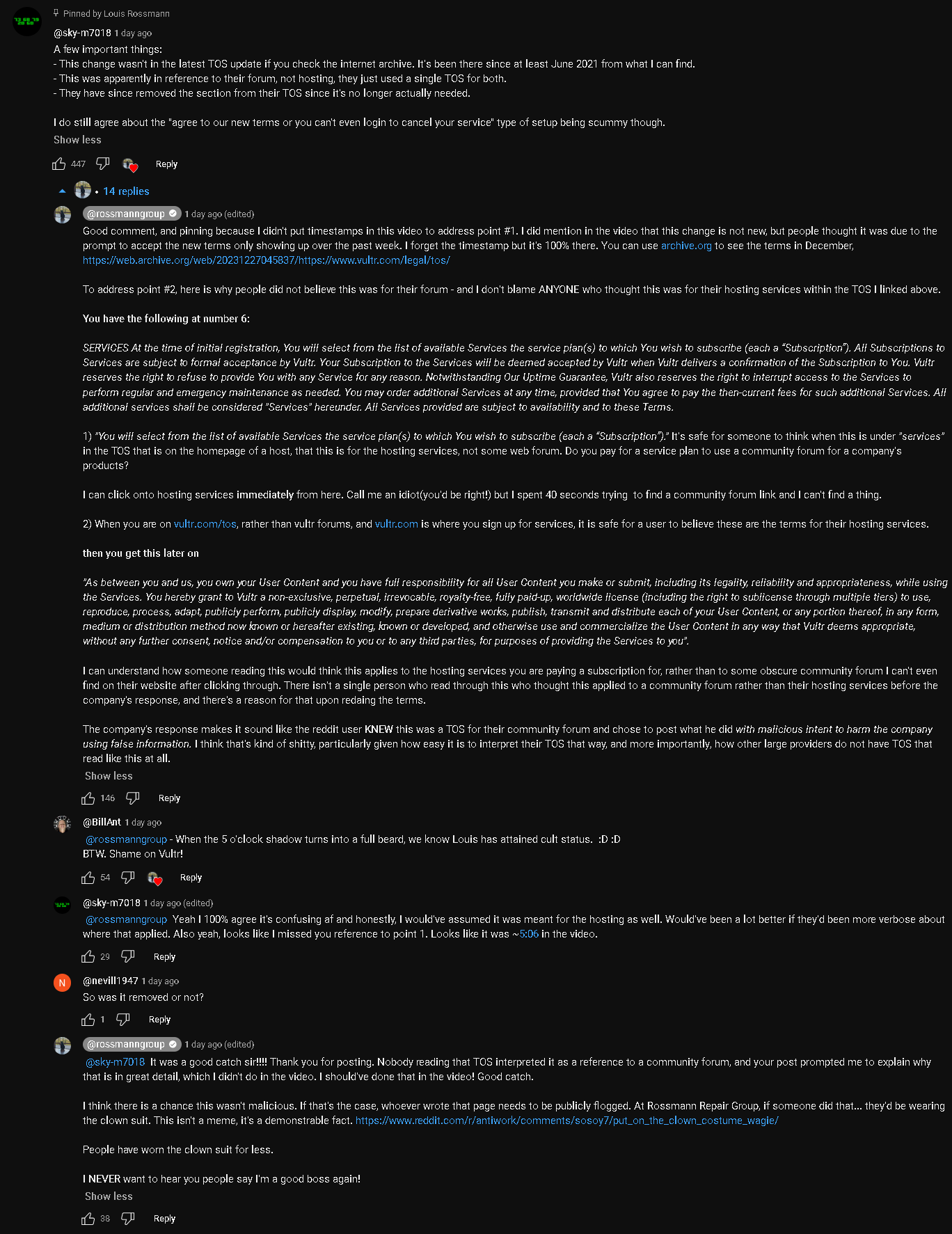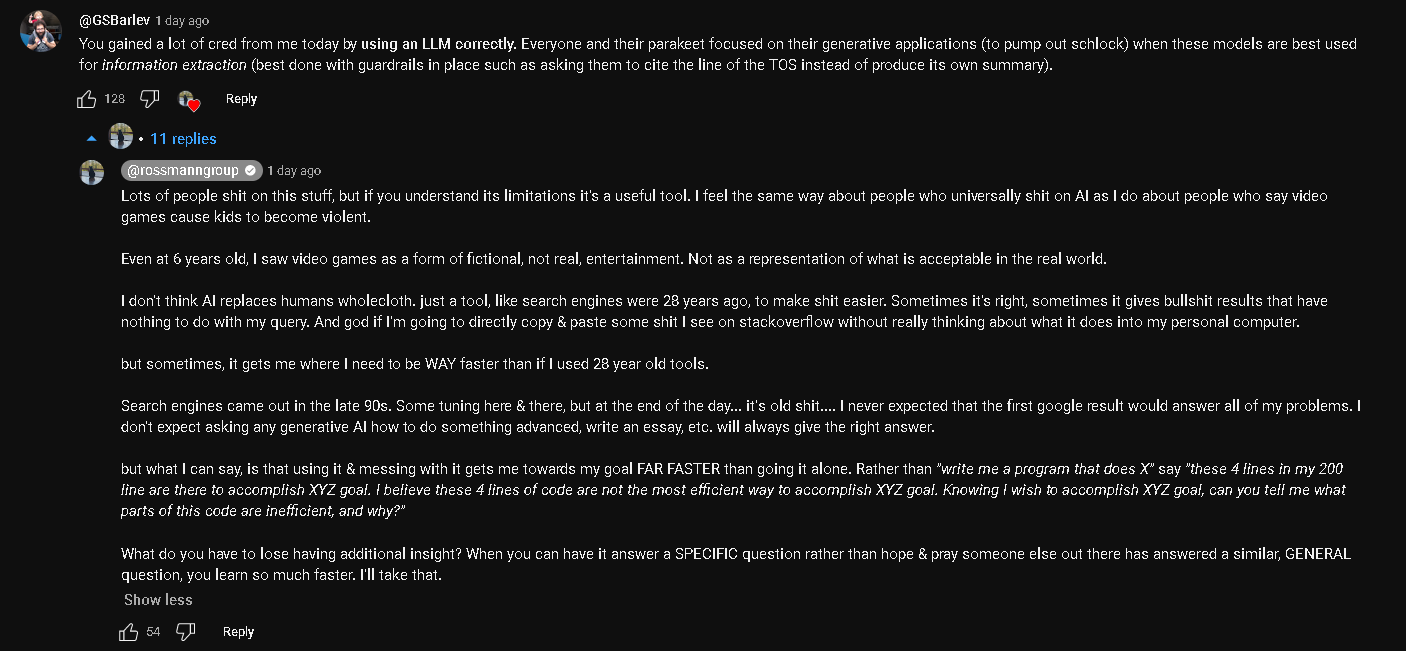Welcome! This page is very large and there are many steps, please take your time. If you would like to edit (you're welcome to fix errors even without an account!), please read this first. Thank you!^[[1] https://wiki.futo.org/wiki/FUTO:About]
Preface
Dedication
Thank you to Tim Gilles, aka Slipperman, whose remarks on what makes someone a “real professional” stuck with me for a lifetime. I listened to Tim on the mixerman radio show. Tim wanted to demystify his craft in a way that anyone could understand; that would inspire EVERYONE to pick up a microphone & a tape machine and give it a shot themselves. He did this with his own “unique” writing style. His work inspired me to do the same with everything I’ve done, from board repair to self-managed servers. Tim passed away two years ago. I hope his legacy lives on through everyone who tries to open doors for the next generation rather than gatekeep information via ego inflating elitism.
Picture of Tim Gilles, aka Slipperman: 
Intro
I started using GNU/Linux in 2002, back when I saved up the $79.99 necessary to buy SuSE Linux 8.1 Professional as a boxed set from the Best Buy across the street from the Staten Island mall for my 14th birthday. I started hosting my own servers in 2005, and put together systems for my own business’ use since early 2011. I didn’t do everything outlined here immediately; it was slowly built piece by piece over a long time. I never documented it in a way that would allow my grandma to use it. In 22 years, I can’t remember reading GNU/Linux documentation that felt like it was designed for normal people. That’s what I’m looking to do here.
Image of SuSE Linux 8.1 Professional: 
From 2002 to the present, two things remain true:
-You can do cool things with GNU/Linux.
-These cool things are hidden behind a labyrinth of
- Half baked software.
- Horrible UI.
- Forum elitists & gaslighting assholes who will make you think YOU’RE the crazy one for expecting things to work.
- People that will tell you to “RTFM” with no regard for whether that documentation actually works.
- black boxes. I mean literally hidden behind actual black boxes. For six months. Unfixed. On the stable version of a server operating system (that bug is present in 24.10 long-term-stable even today).
So much of the open source user experience is not designed for normal people. Whether it was using NDISwrapper 20 years ago to get wifi to work or messing with SCSI emulation to burn a CD, GNU/Linux is pain. It’s all pain.
It’s painful enough that people will happily trade their data, sovereignty, privacy, and their rights to avoid ever having to deal with it; and I can’t blame them.
This has to change. As of 2024, most of you live your life:
- Dependent on closed source software.
- Running on someone else’s server where you can be kicked off at any time.
- Forced into forced arbitration or your device won’t work anymore.
- With no privacy.
- Training AI with your creations.
Now is a time like no other for you to feel empowered to build systems that you control & understand.
My goal with this guide is not to tell you the way you HAVE to do something, or to imply that my way is the best. My goal is to inspire you by showing you what’s possible. You don’t have to be a computer engineer or someone with an IQ of 160 to figure this all out. And, admittedly, to inspire capable developers to look at the pain points scattered throughout this guide (of which there are many) and decide “enough is enough; let’s make this better”.
The fun here is in building your own system, your own way. This is my sovereign cloud; there are many like it, but this one is mine. I can’t wait to see how you build yours.
View edit history of this page.^[[2] https://wiki.futo.org/index.php?title=Introduction_to_a_Self_Managed_Life%3A_a_13_hour_%26_28_minute_presentation_by_FUTO_software&action=history]
Edit: format, added missing quotes on sections/titles/points



